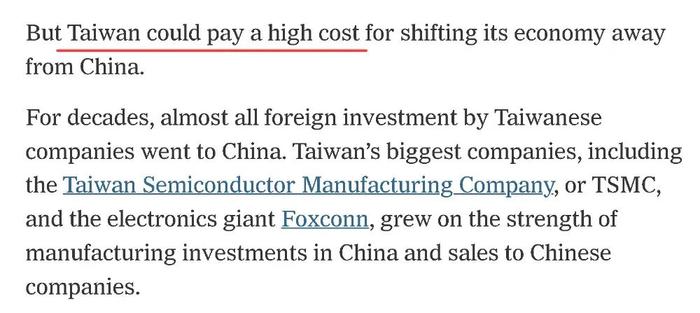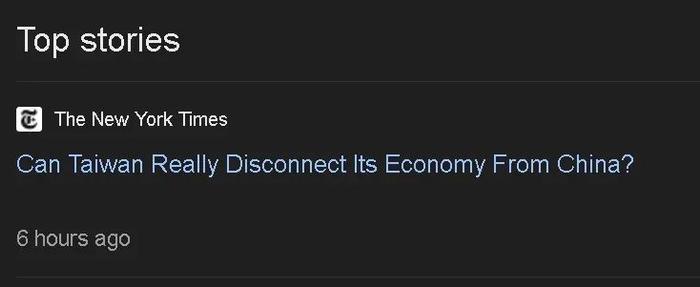

On July 7th, local time, the New York Times published an article on whether Taiwan can decouple from mainland China economically. The article argues that although the Taiwan Democratic Progressive Party (DPP) authorities want to push this forward, it would mean a huge cost for Taiwan.
The New York Times article first points out that Taiwan’s economic development in the past few decades has mainly relied on the mainland, and the economies of both sides are mutually beneficial. On one hand, almost all of Taiwan’s outward investment goes to the mainland, and on the other hand, Taiwan’s large electronic technology companies such as TSMC and Foxconn, as well as food and beverage giant Want Want Group, have grown through mainland manufacturing, policy support, and demand. This includes Taiwan’s richest person, Lin Bai Li, chairman of Taiwan’s Quanta Computer, who has amassed his huge fortune through manufacturing laptops in the mainland.
Secondly, the newspaper argues that Taiwan’s deep economic and trade relations with the mainland have played an important role in maintaining peace and stability across the Straits. For Taiwan, this has reduced the risk of military conflicts, while for the mainland, it has increased channels and methods to exert influence on Taiwan through peaceful means.
Therefore, despite some Taiwanese companies reducing their investment and interaction with the mainland in recent years due to factors such as the DPP authorities, it is still difficult for Taiwan to decouple from the mainland economically, which means a huge cost.
Several Taiwanese business people interviewed by this US media also expressed the same sentiment. For example, a Taiwanese clothing manufacturing enterprise manager who came to Shanghai in mainland China since the 1980s said that it was very difficult to replace mainland suppliers. Another Taiwanese business person working in healthcare in Shandong Province in mainland China also said that she felt it easier to start a business in mainland China than in Taiwan, especially for someone from a working family like her.